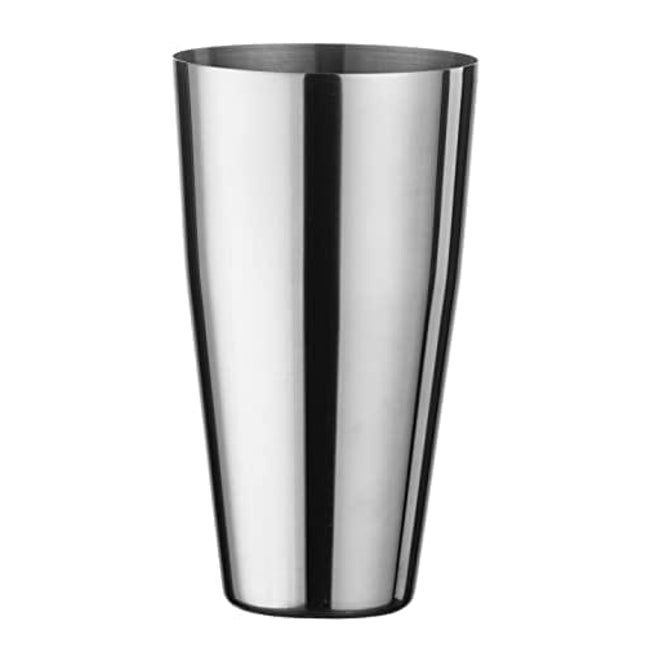BOSTON SHAKER


Godinger Godinger Cocktail Shaker, Martini Shaker, Boston Shaker, Stainless Cup and Crystal Glass to Mix Drinks Cocktails - Dublin Collection
Brand: GodingerFeatures: Dublin crystal collection beautifully crafted boston shaker cocktail martini shaker is the perfect addition to any bar collection. Mix cocktails martinis and other drinks in absolute style. Constructed of stainless steel and lead free crystal glass this gorgeous shaker blends classic brilliance and modern design in one. Mix cocktails martinis and other drinks in absolute style. Lead free crystal. Set includes: stainless steel cup (26oz) crystal cup (12oz) Since 1973 Godinger has specialized in handcrafted silver, crystal, stainless and alternative metal giftware. From wedding gifts, candlesticks, barware and bakeware to tea sets and frames, you are sure to find the perfect item for any occasion. Godinger products are available at all major retailers across the US and Canada. Details: Godinger Cocktail Shaker, Martini Shaker, Boson Shaker, Stainless Cup and Crystal Glass to Mix Drinks - Dublin CrystalEAN: 0028199276037Package Dimensions: 7.6 x 4.2 x 4.1 inches
$ 138.99$ 125.49
The Boston shaker is a preferred choice among professional bartenders because it is more versatile and can accommodate a larger volume of ingredients compared to other types of shakers. Additionally, the glass or tin used in the Boston shaker can also be used for other purposes, such as stirring or measuring ingredients.
What is the difference between a Boston shaker and a cocktail shaker?
A Boston shaker is a type of cocktail shaker, and the main difference between a Boston shaker and other types of cocktail shakers is the design. A Boston shaker consists of two parts: a metal shaker tin and a mixing glass or smaller metal tin, which are used together to create a seal and shake the ingredients.
Why is it called a Boston shaker?
The exact origin of the name "Boston shaker" is unclear, but it is believed to have originated in the early 1900s in Boston, Massachusetts. One theory suggests that it was named after the Boston hotel where it was first used, while another theory suggests that it was named after the Boston area bartenders who popularized its use.


















